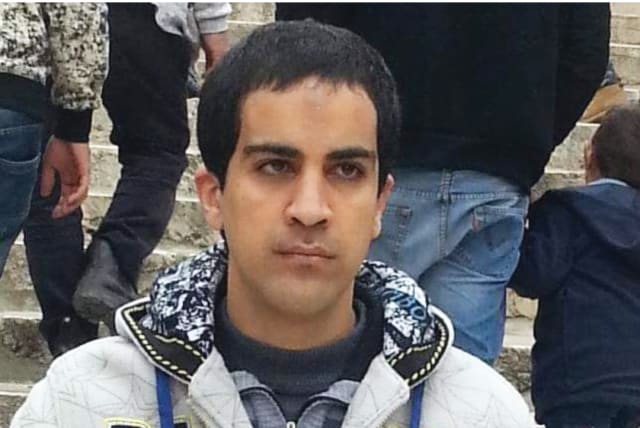Supreme Court upholds decision not to appeal acquittal of officer who killed Iyad al-Hallak

The petition argued that the court's ruling sets new legal norms, and failing to challenge them would have significant legal consequences.
The Supreme Court on Thursday dismissed the petition filed by human rights organizations on behalf of the parents of Iyad al-Halak, who was killed by an Israeli police officer four years ago in Jerusalem’s Old CityThe petition was against the decision of the Police Investigation Department and the State Attorney’s Office not to appeal the Jerusalem District Court’s ruling that acquitted the Border Police officer who killed Halak in May 2020.
According to the investigation, Halak, 32, was walking to the special needs school where he both worked and studied. He noticed two police officers shouting and running toward him and immediately ran off.
Police gave chase and fired two shots in Halak’s direction. He kept running and eventually went into a nearby shed, where another officer opened fire and wounded him. A third officer reportedly shot Halak while he was lying on the ground, killing him instantly.
Following a police investigation in October 2020, the officer who shot Halak dead was charged with manslaughter, which Adalah, an Arab minority rights group, says almost never occurs. However, the officer was acquitted on all charges in July 2023.
The officer’s claim of “perceived self-defense” was accepted by the court as legitimate. Following the ruling, Adalah and the Meezan Organization for Human Rights (Nazareth) filed a petition on behalf of Halak’s parents, claiming that the decision was extremely unreasonable and warranted Supreme Court review.
Setting a new precedent
The petition argued that the court’s ruling set new legal norms, and failing to challenge them would have significant legal consequences.
According to the petition, the decision effectively lowers the threshold for the justifiable use of lethal force by police officers, which could virtually eliminate all criminal accountability in cases where Palestinians are killed by law enforcement.
In addition, the petition argued that the judgment unreasonably expands the parameters of self-defense in criminal law, relying solely on the officer’s subjective perception of danger.
The Supreme Court reviewed the arguments and rejected the need for an appeal. Justices David Mintz, Khaled Kabub, and Ruth Ronnen handed down the judgment unanimously.
Most cases in the Supreme Court are overseen by three of the 15 sitting justices, with only major cases receiving the full attention of the court.
The Supreme Court said that there was no basis for judicial interference and that it would only do so in highly exceptional and exceedingly rare cases.
The court rejected arguments that the Police or the State Attorney’s Office had been influenced by outside factors. The court also dismissed the petition’s assertion that it would set a legal precedent.
Jerusalem Post Store
`; document.getElementById("linkPremium").innerHTML = cont; var divWithLink = document.getElementById("premium-link"); if (divWithLink !== null && divWithLink !== 'undefined') { divWithLink.style.border = "solid 1px #cb0f3e"; divWithLink.style.textAlign = "center"; divWithLink.style.marginBottom = "15px"; divWithLink.style.marginTop = "15px"; divWithLink.style.width = "100%"; divWithLink.style.backgroundColor = "#122952"; divWithLink.style.color = "#ffffff"; divWithLink.style.lineHeight = "1.5"; } } (function (v, i) { });

